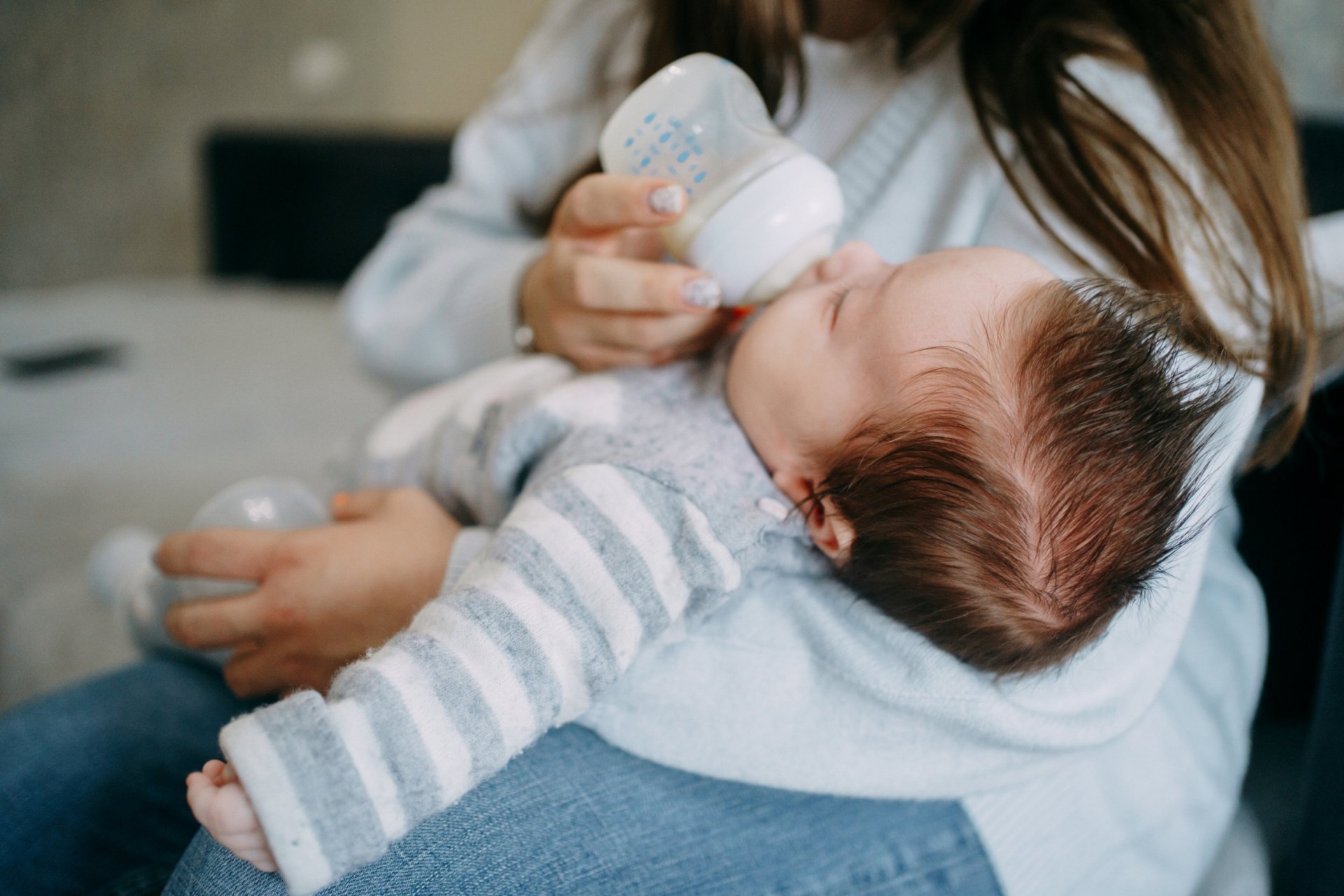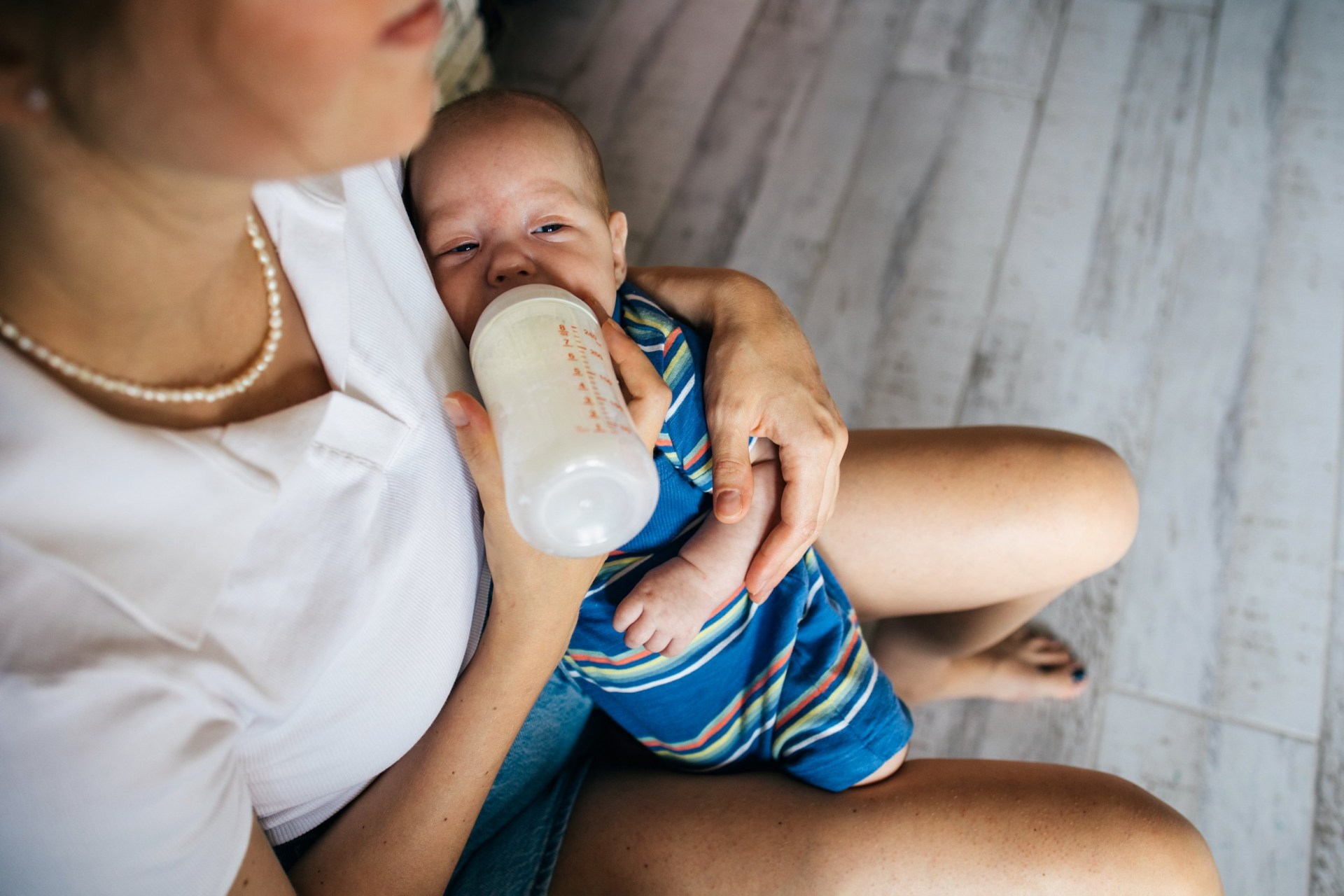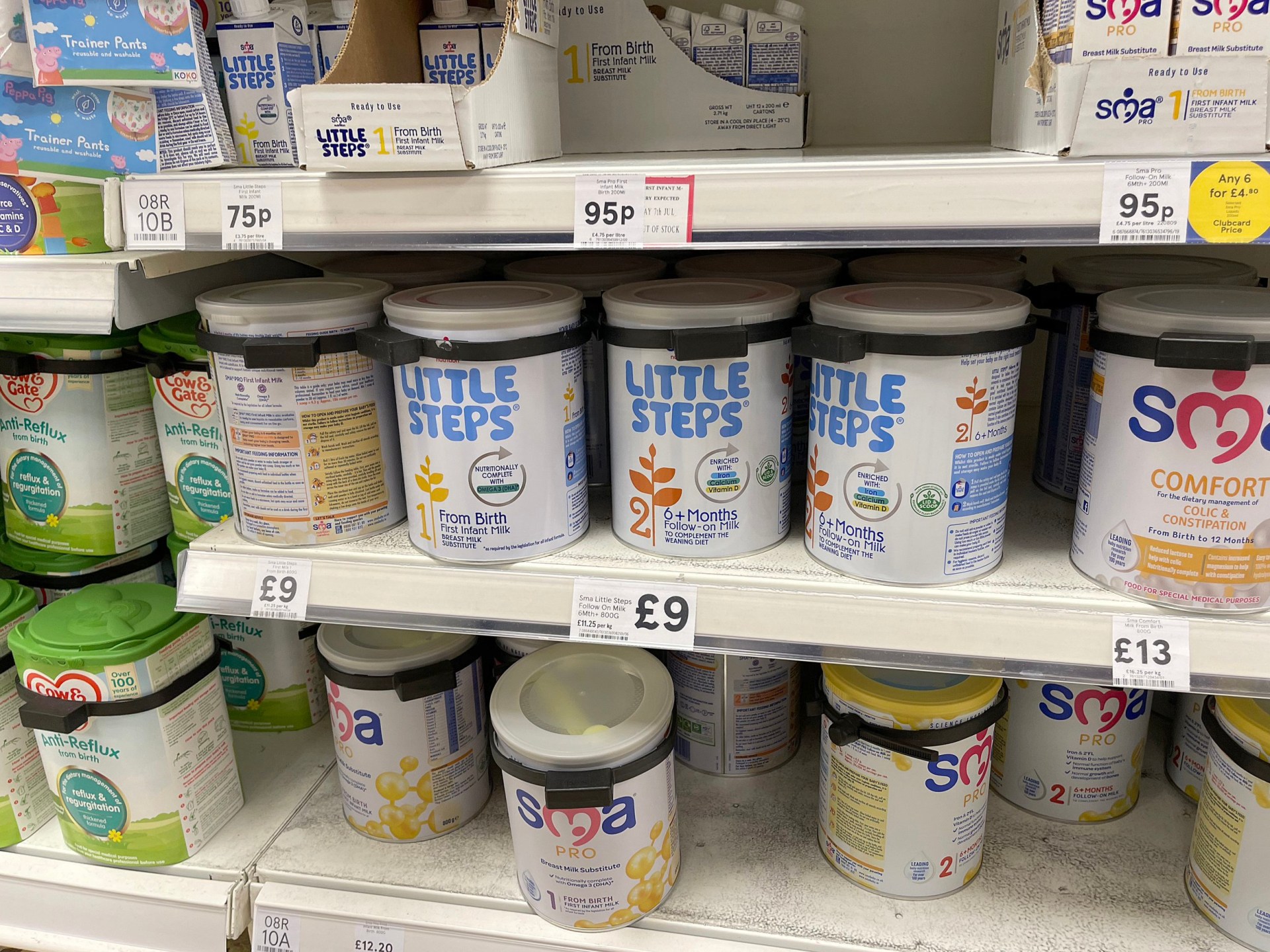NHS Makes Moms Feel Guilty for Their Babies’ Sake

Mothers feel 'doomed to fail' due to insufficient support from the NHS regarding infant feeding, according to reports. charity has reported.
The health The service advises that mothers breastfeed—providing their infants with only breast milk—for a minimum of six months; however, this recommendation is met by fewer than half of all mothers. mums Those who plan to do this tend to follow through, as stated by a family support charity. Feed .
numerous females have informed the charity that this 'ideal' standard is unattainable, stating that the guidance provided by the NHS regarding formula milk is barely adequate at times. There was an instance where one woman reported being told that using formula would be akin to giving her infant 'fatty fried chicken'.
Add information about the 'minimal' support provided does not sufficiently address the 'risks and benefits associated with various infant feeding methods,' which can adversely affect women's mental well-being.
The report, which https://smarthealthradar2025.blogspot.com/ received an early look at, which was released today, just a week after https://smarthealthradar2025.blogspot.com/ and Feed transferred ownership Formula for Change petition to Downing Street, insisting that the authorities take further action to ensure formula milk is both accessible and affordable.
The NHS provides multiple support choices for moms, in addition to their online guides explaining 'how to breastfeed' and highlighting its advantages. Midwives, health visitors, and volunteers provide individual assistance, along with NHS webpage Also suggests that parents should consider attending breastfeeding drop-in sessions.
Yet, numerous insights were gathered from conversations with 830 women initiated by Feed alongside the women’s charity The Lowdown. These discussions revealed that National Health Service guidance—referred to as postnatal feeding support—is inadequate, leaving mothers ill-prepared. In fact, over half (52%) reported feeling unequipped after receiving this information, suggesting it failed to adequately prepare them for their breastfeeding experience.
A mother named Ann shared with the report, "I had no clue about the challenges associated with establishing a proper latch during those initial hours after birth. I wasn’t aware of just how painful it might be nor did I realize how entirely consuming this experience would become."

The initial stages of breastfeeding often present challenges for numerous new mothers. Approximately 30 percent of women encounter at least one issue like painful latch, split nipples, or tender breasts, as reported. NHS’ Infant Feeding Survey .
Although numerous mothers mentioned that breastfeeding becomes more manageable with time, just one out of every ten women polled by Feed believed that the NHS sufficiently prepared them for it.
Similar challenges were faced by women who fed formula.
New moms struggling with minimal sleep feel abandoned due to the NHS’s insufficient support on topics such as sterilization, proper preparation, and determining appropriate amounts, leaving them feeling isolated.
Less than 10% of women reported receiving guidance on safely preparing powdered formula. Only 4% stated they were provided with complete information and support regarding formula feeding, while 57% had to seek out this information independently.

'We were strongly urged to breastfeed, but later when we faced weight problems, the health visitor wanted to switch us to formula without attempting other solutions first,' stated a mother named Ruth.
'I struggled to get any support, which left me feeling like I had let my child down. Because of this, I now combine breastfeeding with using pre-mixed bottles since I still haven't figured out how to properly prepare powdered formula.'
Several moms who were polled also mentioned that it seemed as though NHS personnel 'were not allowed to bring up formula.'

"One helpful midwife who made home visits took off her official NHS hat and privately informed us that it was not unusual to find breastfeeding challenging following a traumatic birth (something we hadn't been advised about). She also mentioned that she had used formula for both of her own children, and they did exceptionally well," Mena shared in the report.
Breast milk offers nutritional advantages and health benefits for infants, including protection against diseases such as diabetes. When breastfeeding isn’t possible, formula milk—which is usually derived from cow’s milk—serves as the sole secure substitute for breast milk during an infant’s first twelve months.
Some mothers opt for formula feeding, whereas others may have no choice due to various factors like health problems or adoption.
'I believed I was disappointing my infant'
The study also revealed that half of the women who were polled reported feeling down or anxious due to difficulties with breastfeeding, which led them to doubt their capabilities as mothers.
The stigma associated with using formula milk was extensive – 75% of women who utilized it reported this issue.
experienced some guilt or shame, whereas one in four wouldn't confess such actions to anyone.
Diane mentioned, "After experiencing postpartum depression, I ended up feeling really down about breastfeeding. Eventually, I decided to stop and switch to formula, but this decision filled me with guilt as I believed I wasn’t doing enough for my child."
Another mother, Imogen, remembered: "A lactation specialist informed me that giving my son formula was akin to serving him a greasy fried chicken dinner, whereas providing him with breast milk was similar to offering him a healthy salad."
'It caused me immense embarrassment and compelled me to continue breastfeeding long past what was best for both my child and myself.'
Feed claims that the present NHS infant feeding policy is 'neglecting women and their families' and asserts that it requires reform. The emphasis should be on providing 'truthful insights' into the difficulties of breastfeeding and offering 'equitable guidance' regarding formula use.
Dr. Erin Williams, who co-founded the organization, commented: “It’s devastating to hear about the struggles mothers endure just to nourish their infants.”
Many mothers have experienced feeling criticized, disappointed, or utterly isolated. The current policies evidently fail to cater to anybody as they do not support genuine families in everyday life.
'This goes beyond mere nourishment; it's about our treatment of mothers. Changes must be made, and they must happen immediately.'
The NHS has been asked for their input.
*Names have been changed
Contact our news team by sending an email to webnews@https://smarthealthradar2025.blogspot.com/.co.uk .
To find similar tales, check our news page .
Get the latest on all the buzzworthy stories by subscribing to the News Updates newsletter from https://smarthealthradar2025.blogspot.com/.

Post a Comment for "NHS Makes Moms Feel Guilty for Their Babies’ Sake"